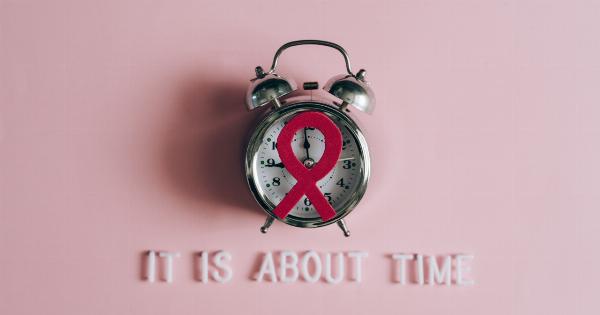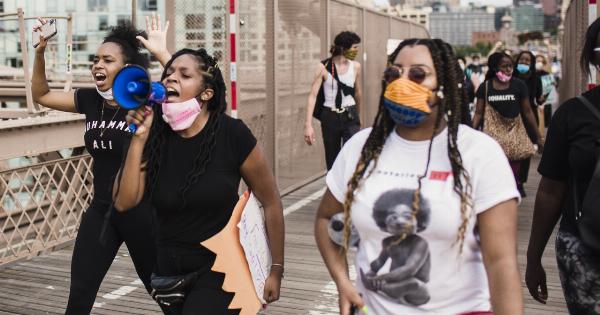One of the most controversial topics in society today is whether women have an easier time than men.
There are those who argue that women have been oppressed for centuries and still face many inequalities, while others suggest that men also face various struggles in society. In this article, we will explore the question, do women have an easier time than men in society?.
Gender inequality – A Real Issue?
There have been many movements, protests, and campaigns to eradicate gender discrimination in the world. Women have faced unequal pay, harassment, and discrimination in various fields, including education, employment, and politics.
However, things have been changing, and several countries have implemented policies to reduce gender inequality, such as gender quotas and paid parental leave. It is debatable whether these policies have resulted in equal opportunities and better treatment of women in society.
Male Privilege – A Myth or Reality?
When we address gender discrimination, we often think about women’s struggles. Still, there are arguments that suggest men have some unspoken privileges in society.
For instance, social constructs have perpetuated the idea that men should be the breadwinners and have more access to leadership positions. Additionally, men do not face the same level of scrutiny as women in terms of appearance, behavior, and personality in various aspects of life. These factors suggest that men enjoy certain privileges that are not accessible to women.
Examining the stereotypes
Stereotypes play a crucial role in our perception of genders and the privileges they have in society. For instance, we associate women with nurturing, caring, and emotional tasks, while men are associated with strength, power, and decision-making roles.
These stereotypes have permeated through various cultures and have impacted how we think about men and women’s capabilities and roles in society. Additionally, many people have internalized these stereotypes and act according to societal expectations.
The impact of media on gender equality
The media plays a significant role in shaping societal norms and perceptions of genders. The representation of men and women in the media has not always been equal or accurate.
Women have often been objectified, depicted as inferior to men, or shown in stereotypical roles such as homemaking or as sex symbols. In contrast, men have been represented as powerful decision-makers with limited emotional depth. Hence, the media’s portrayal of gender has contributed to a skewed perception of gender roles and behaviors.
Gender Inequality in the workplace
The gender pay gap is one of the most significant issues in the workplace. Studies show that women earn less than men for the same job position and work hours.
There are also fewer women in leadership positions, and they face challenges such as sexual harassment, discrimination, and lack of equal opportunities. As a result, women are often made to choose between family and work, leading them to settle for lower-paying positions or leave the workforce altogether, which perpetuates the gender pay gap.
Gender Inequality in Relationships
In addition to the inequalities in the workforce, women also suffer from gender discrimination in their personal lives, especially in relationships.
Women are often expected to conform to traditional gender roles, such as being the primary caregiver or homemaker. They also face violence, control, and abuse by their partners. Additionally, cultural and religious practices uphold patriarchal values that subjugate women and limit their opportunities.
Diversity and Inclusion can promote equality
To eradicate the gender gap and promote fairness, there is a need to implement diversity and inclusion policies in various institutions.
Diversity and inclusion initiatives ensure that any individual, regardless of race or gender, has equal opportunities and treatment. Through this, more women can occupy leadership and decision-making positions in society, which will bring about more inclusive policies and attitudes towards gender.
Challenges faced by Men in Society
While gender discrimination against women remains an issue, it is essential to understand that men also face unique challenges.
One significant challenge is mental health, where men may be taught to suppress their emotions and mask any weaknesses or struggles. As a result, many suffer in silence and do not seek help for mental health issues, leading to higher rates of suicide and substance abuse.
Additionally, men face societal expectations of masculinity, where they are expected to be the breadwinners, protectors, and emotional rock of the family. This pressure can lead to stress, burnout, and strained relationships.
Conclusion
Gender discrimination remains a real issue in society, affecting both men and women differently.
Women have struggled with unequal pay, limited opportunities, and gender-based violence, while men face tough societal expectations of masculinity and mental health issues. To address gender inequalities, there is a need for diversity and inclusion policies that promote fairness and equal opportunities for everyone, regardless of gender.






























